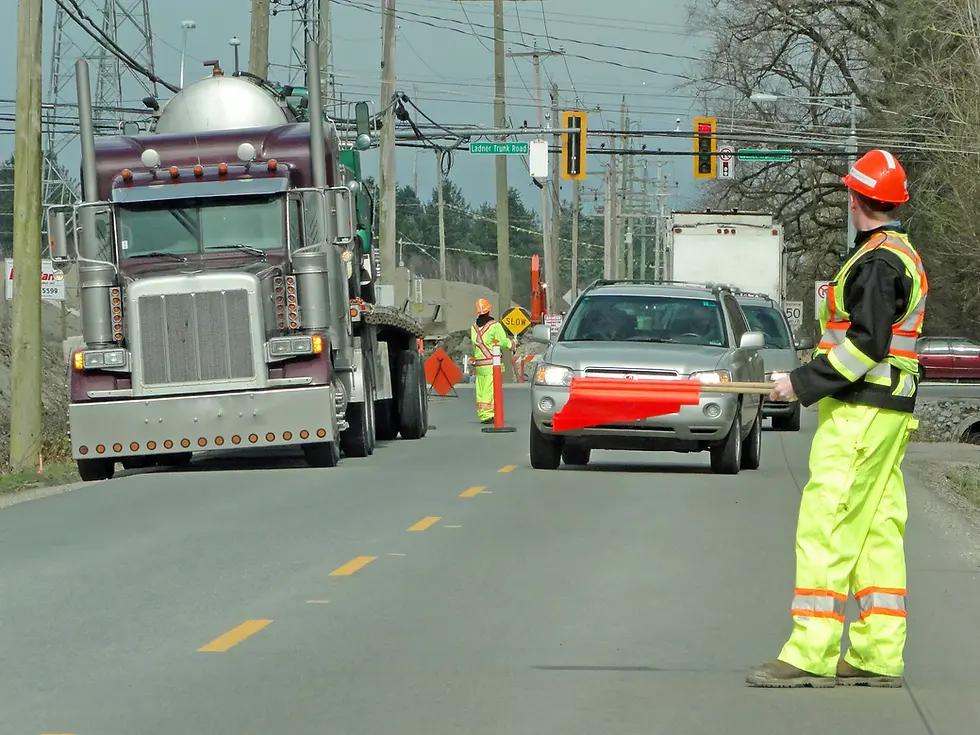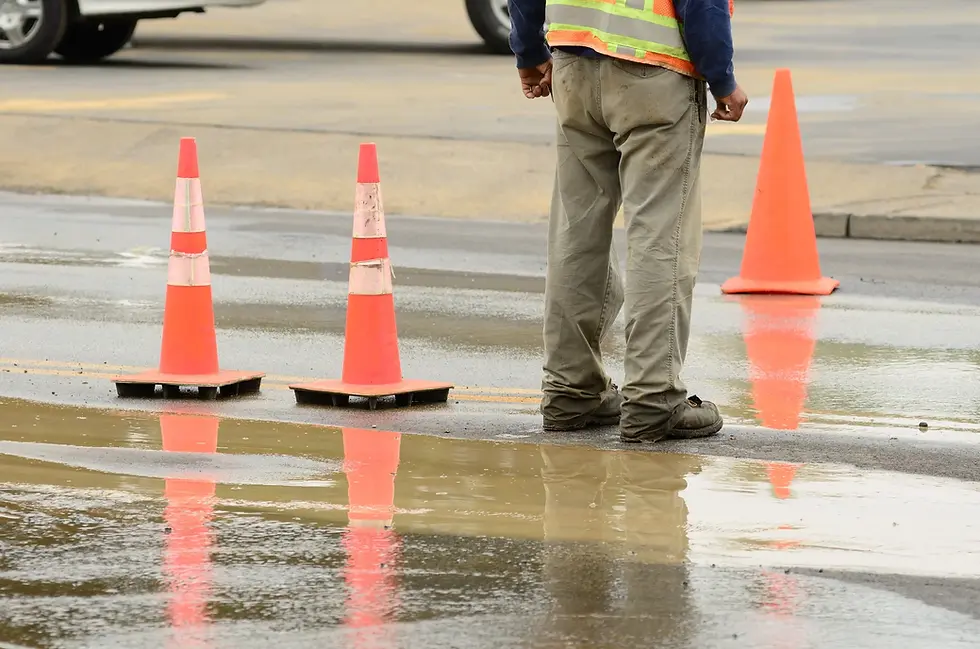Zoom Into A New Career – Traffic Control Course Certificate
- Edway
- Sep 23, 2024
- 2 min read
Updated: Jul 28, 2025
Want to zoom into a new career that has a definite career growth path? Getting a Traffic Control Course Certificate in Melbourne would be your first step.
Traffic control is a daily part of many industries, from construction to public events and trained professionals are in high demand. So what are you waiting for? Completing this course not only equips you with essential skills but also opens doors to various job roles and career progression in traffic management. Learn more here!
When is Traffic Control Used?
Here is an example of some of the industries that use traffic controllers:
Construction Industry: Traffic control is a big part of everyday life in the construction industry. It safely directs vehicles and pedestrians around work sites. From residential construction projects to major roadworks, traffic controllers are responsible for managing vehicle movement, overseeing pedestrians, setting up signs and using stop-slow bats to direct traffic.
Public Events & Festivals: Large events like festivals, concerts and sports events use traffic management to control the flow of attendees and raise safety levels. Traffic controllers help manage vehicle access, parking and pedestrian crossings.
Road Maintenance: During road works or road upgrades, traffic controllers set up the predesigned traffic flow plan and then safely direct vehicles around work zones. They minimise disruptions and ensure a steady flow of traffic. This industry relies heavily on certified traffic controllers.
Career Progression in Traffic Control
With a Traffic Control Course Certificate, you can aim for various roles within traffic management. Here's a breakdown of potential job titles and career progression:
Traffic Controller: This entry-level position is responsible for setting up signs according to the predesigned traffic plan. You will use stop-slow bats, 2-way radios and direct traffic around work zones. You ensure traffic flows safely through construction sites or public events. This role will give you valuable on-site experience, which will assist you when you are in your future traffic engineer role.
Traffic Management Implementer: The next step is to move into a traffic management implementer role. This position carries more responsibility, including creating and implementing traffic management plans. For example, you will set up and remove traffic control devices like bollards, hazard lights and message boards, ensuring that all safety measures comply with regulations.
Traffic Management Supervisor: A traffic management supervisor oversees traffic control operations on larger sites. You will coordinate the activities of all the traffic controllers and implementers on a specific site. You will ensure that safety and efficiency are on par with expectations. You must display strong leadership skills and a thorough understanding of traffic management regulations and procedures.
Traffic Planner Or Traffic Engineer: This job typically requires a civil engineering degree or a closely related field. These roles involve designing traffic control systems and plans for major infrastructure projects. You will work closely with government bodies and construction companies to develop long-term traffic management strategies.
Enhance your career by booking a traffic control course certificate today.





Comments